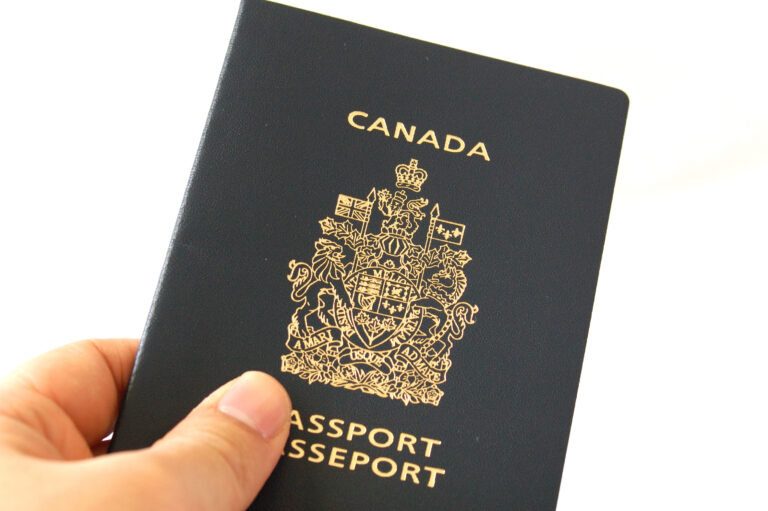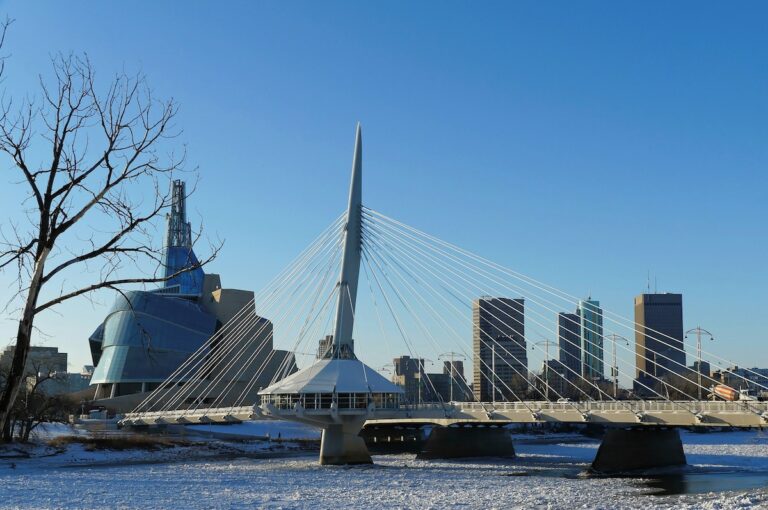Canada’s passport has been given a new look and state-of-the-art security features, using the same technology as drivers’ licenses.
“The new Canadian passport is more than a travel document,” said Immigration Minister Sean Fraser.
“It is a representation of our national identity and values. It is a reminder of the beauty and diversity of Canada and it reflects the country’s commitment to welcoming people from all around the world.”
The personal data of Canadian passport holders will now be laser-engraved instead of being printed with ink, a move Ottawa claims will make the data page more durable and more resistant to tampering and counterfeiting.
“The new passport includes state-of-the-art security features designed to keep Canadians’ identities safe, such as a polycarbonate data page, a technology similar to Canada’s driver’s licences,” notes Immigration, Refugees and Citizenship Canada (IRCC).
“Other features include a Kinegram over the main photo, a custom see-through window with a secondary image of the passport holder, a variable laser image, and a temperature-sensitive ink feature.”
Read More Canada Immigration News
Prince Edward Island Recruits Internationally-Trained Nurses In Dubai
Canada Beats Australia And US As Favourite Destination For International Students
Banks and IT Companies Top List Of Best 25 Workplaces To Grow A Career In Canada
The new passport, which will be rolled out this summer, sports iconic images of Canada’s natural beauty throughout the four seasons and includes a new cover design with an outline of a maple leaf. The new passports were designed and developed by Canadian Bank Note Company under a 14-year contract with the federal government.
The current version of passports, released 10 years ago, remains secure and reliable and so Canadians with valid passports will only need to renew them when they are getting close to their normal renewal date.
“The Canadian passport is a fundamental document of citizenship, recognized around the world,” said Karina Gould, minister of Families, Children and Social Development.
Canadian Passport Ranks Fourth Internationally Under The Henley Passport Index
“The government is committed to ensuring passport services are quick, efficient and modern. We are working hard to give Canadians a seamless experience, from the moment they apply until the moment the passport arrives in their hands.”
As of April this year, the Henley Passport Index ranks the Canadian passport fourth globally, offering holders visa-free access or visa on arrival to over 170 countries.
Earlier this year, the power of the Canadian passport nudged up one point on The Henley Passport Index to hit a score of 186.
The 18-year-old Henley Passport Index, which is updated quarterly, uses data from the International Air Transport Authority (IATA) to compare 199 passports for 227 travel destinations and gives a ranking for the top 112 of them that reflects the global mobility afforded by the passports of those nations.
Watch
“The total score for each passport is equal to the number of destinations for which no visa is required,” notes the Henley & Partners website.
Canada regularly features among the countries with the world’s most powerful passports, offering visa-free access, which is seen as a measurement of the freedom of citizens of a country, to many destinations.
The organization’s first-quarter ranking of 2023 of the passports of countries all over the world put the Canadian passport on par with those of Australia, Greece and Malta. All of those countries, including Canada, scored 186 on the index.
The highest-ranked passports are the ones issued by Japan and Singapore. They scored 193.
Second place went to South Korea with a score of 192. Germany and Spain tied for third with scores of 191. Finland, Italy and Luxembourg came in fourth with scores of 190.
The European countries of Austria, Denmark, the Netherlands, and Sweden scored 189 each while France, Ireland, Portugal and the United Kingdom placed sixth with scores of 188.
Afghanistan Has The Least-Desirable Passport In The World
The United States was one of five countries, including Belgium, New Zealand, Norway and Switzerland, that narrowly beat out Canada by a single point to snag the seventh spot in the rankings with scores of 186.
Narrowly beating out Canada by a single point on the index’s scorecard, the American passport garnered a score of 187 and came in seventh place along with Belgium, the Czech Republic, New Zealand, Norway and Switzerland.
The dubious distinction of having the least-desirable passport in the world goes to Afghanistan which got only 27 points to place 108th.
Barely beating out Afghanistan for the worst passport in the world is Iraq, whose passport was given a score of 29 and Syria, with a passport score of 30.
The Canadian passport reached the second spot on The Henley Index in 2014, then slid to sixth place by 2016 and stayed there for four years. The passport then lost ground relative to other passports throughout the world during the pandemic as public health restrictions and border closures severely limited travel to other destinations.
Last year, though, the Canadian passport moved up a notch, to the eighth spot and is so far holding steady there.



